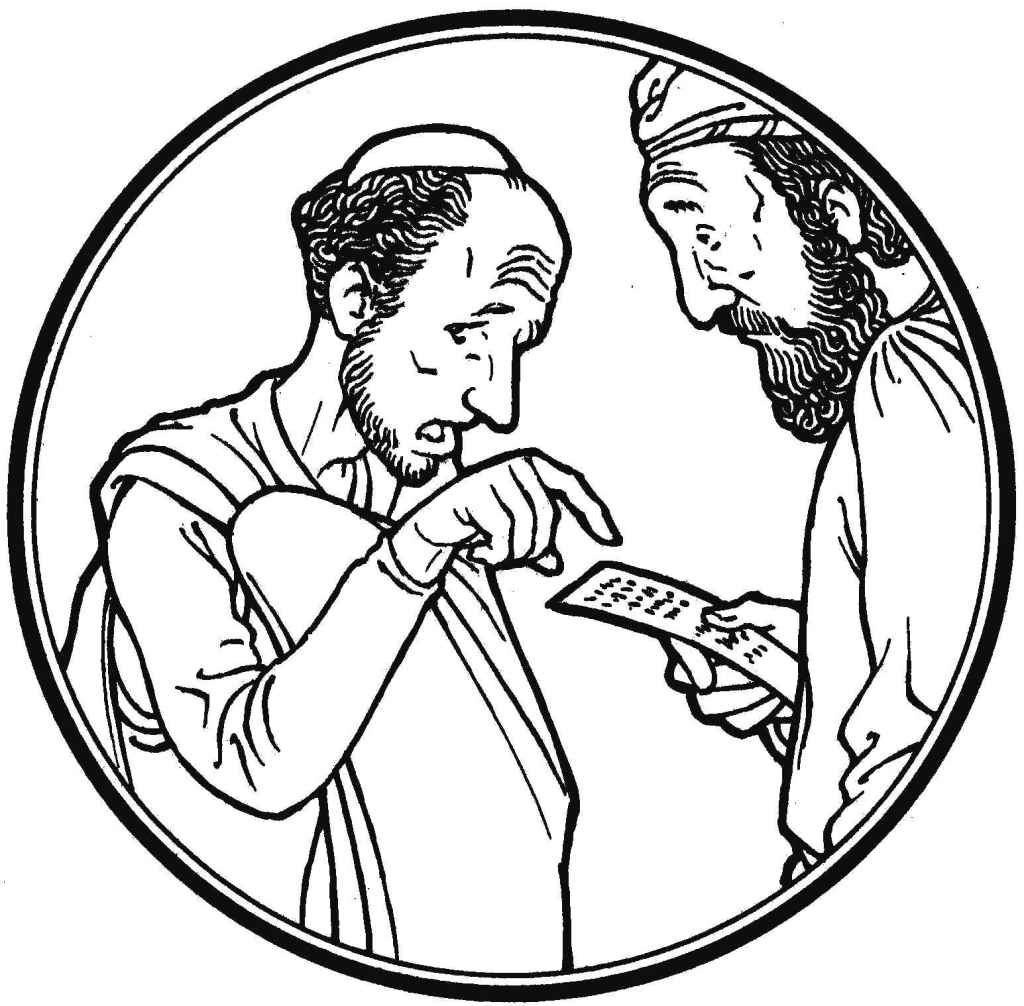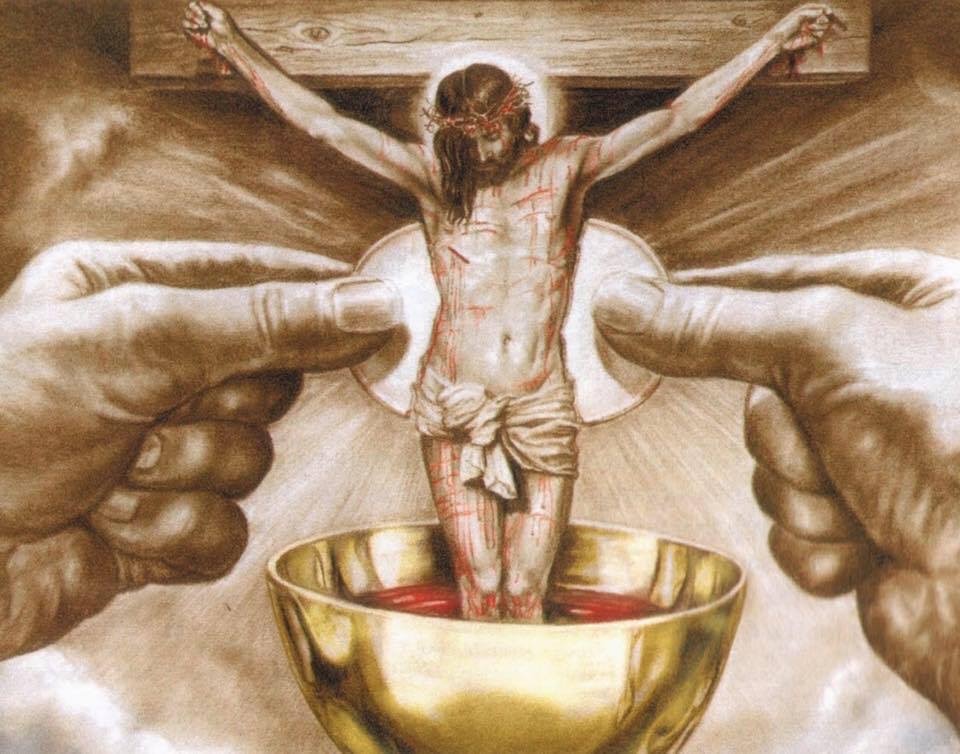6 Now these things took place as examples for us, that we might not desire evil as they did. 7 Do not be idolaters as some of them were; as it is written, “The people sat down to eat and drink and rose up to play.” 8We must not indulge in sexual immorality as some of them did, and twenty-three thousand fell in a single day. 9 We must not put Christ to the test, as some of them did and were destroyed by serpents, 10 nor grumble, as some of them did and were destroyed by the Destroyer. 11 Now these things happened to them as an example, but they were written down for our instruction, on whom the end of the ages has come. 12 Therefore let anyone who thinks that he stands take heed lest he fall. 13 No temptation has overtaken you that is not common to man. God is faithful, and he will not let you be tempted beyond your ability, but with the temptation he will also provide the way of escape, that you may be able to endure it.
In the name of Jesus. Amen.
When you’re nearing the end of a task or a project, that’s not the time to get lazy, sloppy, or careless. As you get near to the goal, you need to pay close attention to what you’re doing and finish strong and make sure that you are doing things right. You’ve maybe seen replays from football games where a receiver or kick returner makes an amazing play, outruns the defense, and is about to cross the goal line. But he starts celebrating a few inches too soon and drops the ball right before the endzone. That one, careless act erases everything that he did before.
Well, here, Paul says that the end (τέλος, ‘the completion’) of the ages has come (1 Co. 10:11). And remember, he’s saying this to Christians nearly 2,000 years ago. Since it was true way back then then, it’s even truer now. Paul is encouraging us to finish strong and cross the goal line. He says, “Let anyone who thinks that he stands take heed lest he fall,” (1 Co. 10:12). In other words, don’t fall away, don’t fumble the ball, when you are so close to Christ’s return.
Plain as day, Paul tells us exactly what might drag us down and cause us to fall. In the opening verses of 1 Co. 10, he invites us to think about all the ways God’s people sinned, rebelled, and were judged after God had delivered from slavery in Egypt. He reminds us how they fell into idolatry, sexual immorality, and grumbling, causing them to be destroyed. Paul says that those things took place as examples for us.
Even though they had had God’s protection under the cloud, even though they had God’s miraculous deliverance and passed through the sea, even though they were all baptized in the cloud and in the sea, even though they ate the same spiritual food we eat and drink the same spiritual drink we drink – even though they had all those blessings from God, they were overthrown. So, Paul warns us to not be like them. To not be idolatrous, going after our own golden calves, and to not indulge in sexual immorality. To not put Christ to the test and become destroyed.
We need to learn from their example so that we don’t stumble and fall into temptation and sin right before the end of the ages. Christ is returning, and we need to persevere. If you think that you stand on your own, repent. You’re in big trouble and are about to fall (1 Co. 10:12).
Paul concludes here in v. 13, “No temptation has overtaken you that is not common to man. But God is faithful, and he will not let you be tempted beyond your ability. But with the temptation, he will also provide the way of escape, that you may be able to endure it.”
So according to Scripture, we need to learn from from the failures of others, because we are also prone to fall. We face the same temptations they did, but God is – and always will be– faithful to provide the way of escape. Often in ways that we don’t expect.
Everyone faces the same temptations. Now, being tempted is not a sin. But coveting is a sin. That’s why God gives us the final two Commandments about coveting. Coveting is the stealth bomber of sin. It flies under the radar of your conscience. Your conscience usually detects the sins that you commit in an outward way. But the sin of coveting is committed in an inward way.
You might feel guilty about replying to your spouse or someone else in an angry way that is rude and inconsiderate. But you might not be too troubled about feeling anger if you don’t let that anger out. To be clear, both of those are sins need forgiveness. Both need repentance and faith. But the 9th and 10th Commandments about coveting show that God’s Law governs even our inner thoughts, feelings, and emotions. You’ve heard this before, but it’s worth repeating over and over again. Scripture equates coveting with idolatry (Col. 3:5; Eph. 5:5).
Coveting is, basically, saying, “God, You messed up. That thing over there should be mine over here.” When we realize that coveting is idolatry and is how we place ourselves above God, then coveting becomes gross and disgusting. Don’t falsely desire what God hasn’t given you. Let God be God.
So, the devil, the world, and our own sinful flesh always tempt us first to covet. They will put things in front of us that we think should be ours. Coveting is the way in which we begin to break any/all of the commandments.
But look closely at verse 13, and you’ll see three comforting truths:
First, the temptations that you face are not unique. Yes, the devil, the world, and our own flesh will individually tailor certain temptations to each of us. But everyone is tempted by the same things. Maybe in different ways, maybe through different processes, but the things that tempt you are the same things that tempt others as well.
Second, God is faithful and will not allow you to be tempted beyond your ability. God knows precisely how much weight, how much pressure, of temptation you can bear. Imagine temptations as ropes or chains that the devil would use in order to pull you toward sin. Satan cannot use ropes or chains that are too strong for you. God simply doesn’t allow it. Those chains of temptation will completely snap at the exact weight that God Himself has determined. But also, realize what that means:
Whenever you or I sin, we aren’t pulled into that sin by forces stronger than us. No. We just didn’t fight back long or hard enough for those cords to break. In other words, when we sin, we jump headfirst into those pits. So, fight back. Fighting temptation isn’t just a mortal combat for your physical life. It’s an eternal combat for your soul. If you want to see the chains of temptation snap, just read Mt. 4 or Lk. 4 to see how Jesus resists the devil’s temptations.
The third promise that God gives here in v. 13 is that God will provide the way of escape. You have an escape out of temptation. Sometimes, people will misconstrue v. 13 and say things like, “God won’t give you more than you can handle.” On the one hand that’s true, but it’s only half true. And half-truths are often worse than blatant lies. That phrase places all the weight of fighting temptation on you and your own psychological capabilities. That phrase is basically saying, “You just need to be mentally strong enough to handle it.” Well, God gives something much better than that. He gives a way of escape.
Think of Joseph. Joseph gets attacked by his brothers and thrown into a pit, but Joseph can’t handle staying in the pit the rest of his life. So, God gives an escape, and that escape is that he is sold as a servant to Potiphar in Egypt (Gen. 37:28; 39:1). Later, Joseph can’t handle Potiphar’s wife asking him day after day to fornicate with her. So, God gives Joseph another escape by putting him safely into an Egyptian prison (Gen. 39:7-20).
In Joseph’s life, we see that God causes all things – even things we think are bad or horrible – to work together for good for those who love Him and are called according to His purpose (Ro. 8:28).
In every temptation, God gives a way of escape. I know that example of Joseph might not be comforting, so think of Paul himself. In 2 Cor. 12:7-10, he talks about having a thorn in his flesh. He prays three times that God would remove that thorn, but God’s response is simply, “My grace is sufficient for you, for My power is made perfect in weakness.”
It may be that your escape from temptation is only going to come through other trials, like it was for Joseph. Or, it may be that your escape from temptation is God’s promise of His continual grace, like it was for Paul. But ultimately, your way of escape is coming because Christ is returning.
Believer, Christ is returning to bring you to the new creation. The end/completion of the ages and the resurrection of the body is the ultimate escape from temptation. So, press on in your fight against temptation and sin.
Rose, that brings me to you. Rose, today you are baptized, not just into Moses, but into the name of the Father, Son, and Holy Spirit. Now, Rose, you bear His name (Mt. 28:19). Persist. Persevere. Fight against the temptations that the devil, world, and your own flesh will throw at you.
And all you dear saints, you fight too. To strengthen you in that fight, Jesus now invites you to His table. Here, He delivers His Body and Blood, given and shed for the forgiveness of all your sin. Here, you receive God’s grace and mercy. Here, you see God’s faithfulness to you. Resist, fight, flee temptation because the end of all things is at hand. Amen.
The peace of God, which surpasses all understanding, will guard your hearts and minds in Christ Jesus. Amen.





 The master had every right to reinstate the debts, but he doesn’t want his reputation of being merciful to be tainted. The master would rather eat the loss than have his mercy put into doubt. So, the merciful master praises and commends the dishonest manager for his shrewdness.
The master had every right to reinstate the debts, but he doesn’t want his reputation of being merciful to be tainted. The master would rather eat the loss than have his mercy put into doubt. So, the merciful master praises and commends the dishonest manager for his shrewdness. This reduction was, of course, not legally binding. The rich man could have simply said, “Hang on everyone. I fired that guy before he lowered your debt. You still owe the original amount.” But that isn’t the character of the rich man. Instead, the whole town is singing the praises of the rich man because he is so generous. And the rich man isn’t willing to harm his reputation as a merciful guy. So, what does the rich man do in the parable? He tells the fired, scoundrel of a manager, “Dude, you’re shrewd. You knew I’d rather be known as a merciful person rather than hold on to my wealth. And by your shrewdness, you’ve helped yourself.”
This reduction was, of course, not legally binding. The rich man could have simply said, “Hang on everyone. I fired that guy before he lowered your debt. You still owe the original amount.” But that isn’t the character of the rich man. Instead, the whole town is singing the praises of the rich man because he is so generous. And the rich man isn’t willing to harm his reputation as a merciful guy. So, what does the rich man do in the parable? He tells the fired, scoundrel of a manager, “Dude, you’re shrewd. You knew I’d rather be known as a merciful person rather than hold on to my wealth. And by your shrewdness, you’ve helped yourself.” Now, Jesus is absolutely clear, “You cannot serve God and money.”It can’t be done. If you trust in money, you do not trust God. So, repent of your love of money.
Now, Jesus is absolutely clear, “You cannot serve God and money.”It can’t be done. If you trust in money, you do not trust God. So, repent of your love of money. The only thing that matters for your salvation is what Christ has done and completed for you upon the cross. Even when you are stingy and fail to be generous with what God has given to you, God was not. He gave what was most valuable to Him for your salvation. God, in His mercy, gave Jesus to die upon the cross for you. Don’t trust in your stewardship of what God has given you. Instead, trust in Christ’s giving of Himself completely for you and for others. Amen.
The only thing that matters for your salvation is what Christ has done and completed for you upon the cross. Even when you are stingy and fail to be generous with what God has given to you, God was not. He gave what was most valuable to Him for your salvation. God, in His mercy, gave Jesus to die upon the cross for you. Don’t trust in your stewardship of what God has given you. Instead, trust in Christ’s giving of Himself completely for you and for others. Amen.
You must be logged in to post a comment.